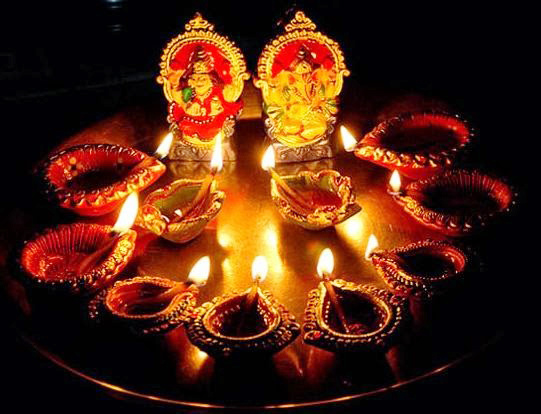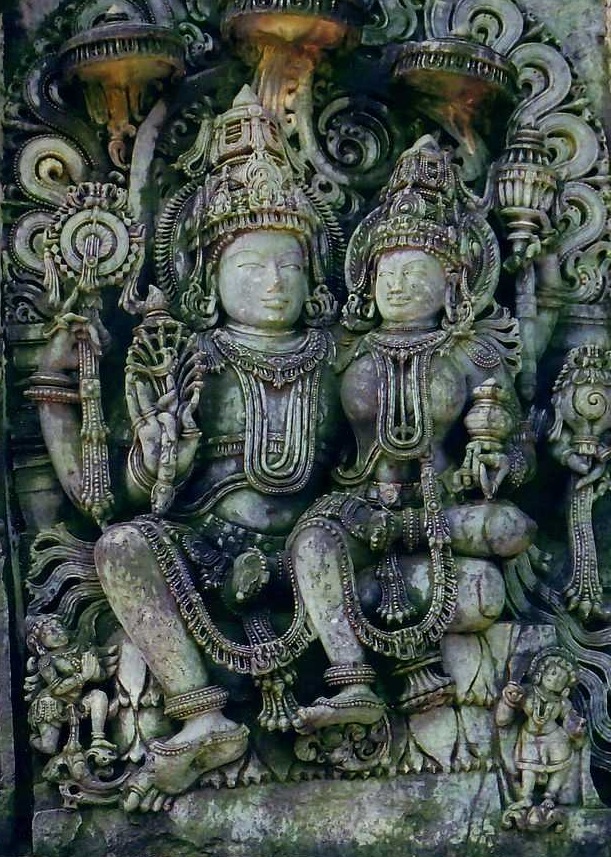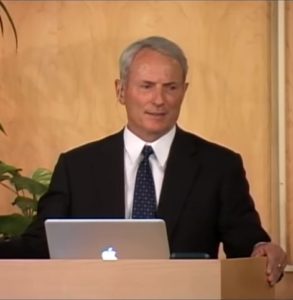
ROME — The Pontifical Council for Interreligious Dialogue recently sent greetings and “prayerful good wishes” to Hindus for Diwali, a festival in which adherents pray to various pagan gods and goddesses to seek a blessing of prosperity and wisdom for the new year.
The council sought to use the occasion as a time to speak of caring for the vulnerable in society and to urge readers to “join hands with the adherents of other religious traditions” to “make collective and concerted efforts” to help others.
“The Pontifical Council for Interreligious Dialogue is fulfilling the Jesuit agenda to unite all people under the papacy,” opined Mike Gendron of Proclaiming the Gospel Ministries in Plano, Texas.
He noted that Jorge Bergoglio, also known as Pope Francis—being the first Jesuit pope—once said that all men are children of God, no matter their beliefs.
“He said, ‘Many think differently or seek God in different ways, but there is only one certainty: we are all children of God,'” Gendron expounded. “The pope’s assertion is completely false according to God’s word. No one seeks for God (Rom. 3:11). No one seeks after the true God, but there are many who seek after false gods of their own imagination.”
WHAT IS DIWALI?
As previously reported, Diwali is an ancient festival originating in India, and is considered the largest shopping season in the Hindu religion. In addition to hanging lights and sharing legends and mythological stories about battles between good and evil, Hindus offer prayers to one of more of their deities—most commonly Lakshmi, the “goddess of wealth” and spouse of the myth god Vishnu.
“Some believe that Lakshmi wanders the Earth looking for homes where she will be welcomed. People open their doors and windows and light lamps to invite Lakshmi in,” National Geographic outlines.
The festival lasts for five days, but the third day is the central day of the observance, which also recognizes Ganesh, “the elephant-headed god of wisdom.” On the second day, Hindus celebrate the victory of Krishna, who is considered the eighth incarnation of Vishnu, over the demon Narakasura.
“Others, especially in northern India, celebrate Rama and his victory against Ravana, while those in Bengal worship Kali, the goddess of death,” Live Science explains.
Especially in India and Nepal, dogs and cows are celebrated or worshiped as being sacred creatures, and are decorated with red dye and garlands of flowers.
“According to Hindu tradition, the dog is a messenger, believed to guard the gates of the afterlife. So on that second festival day, all dogs get special recognition and honor,” explains the site DogTime.
“In Hinduism, Gauhatya (killing of [a] cow) is considered as sin. During this day, Gai is worshipped by putting Tika on her forehead, flower garland around her neck and offering good meals,” the site Himalayan Glacier outlines. “People spray drops of Gaumutra (cow’s urine) to purify their body and home.”
Reports out of Ujjain, India state that some men volunteered themselves to lie on the ground and be trampled by cows during this year’s festival out of the belief that doing so might bring them prosperity.
MESSAGES FROM CATHOLIC LEADERSHIP TO HINDUS FOR DIWALI

However, the Pontifical Council for Interreligious Dialogue, in its Oct. 31 message to Hindus “for the feast of Deepavali,” characterized the observance as if all worship the same God, writing that the festival marks “the beginning of a new year, family reconciliation, especially between brothers and sisters, and worship of God.”
It also issued a statement entitled “Christians and Hindus: In Defense of the Vulnerable of Society” to use the occasion to speak on the shared interest of helping the poor, elderly, disabled, sick, abused, migrants, marginalized and others who are “discarded and ignored by a society increasingly indifferent and even callous in the face of human needs and sufferings.”
“The moral duty to care for the vulnerable springs from our shared belief that we are all God’s creatures and, as a result, brothers and sisters, equal in dignity, with responsibility for one another,” the message, signed by Miguel Ángel Ayuso Guixot, read in part. “It also stems from the realization that we too at times feel vulnerable, looking for someone to offer us a helping hand.”
“As believers grounded in our own respective spiritual traditions, and as individuals with shared concerns for the wellbeing of all, may we join hands with the adherents of other religious traditions and all people of good will, and make collective and concerted efforts to secure a joyful present and a hopeful future for our vulnerable brothers and sisters!” it declared.
Read the message in full here.
The Catholic Bishops’ Conference of India similarly issued a message wishing Hindus a happy Diwali, which it referred to as a “great Indian festival.” It sought to find parallels between lighting lamps and candles for Diwali with Christ’s words about being a light.
The message cited the words of Indian Hindu monk Swami Vivekananda, stating, “Swami Vivekananda gives a clarion call: ‘Bring all light into the world. Light, bring light! Let light come unto every one; the task will not be finished till everyone has reached the Lord. Bring light to the poor and bring more light to the rich, for they require it more than the poor. Bring light to the ignorant, and more light to the educated, for the vanities of the education of our time are tremendous! Thus bring light to all and leave the rest unto the Lord …'”
“Each one of us is the bearer of this light,” Secretary General Theodore Mascarenhas, who wrote the greeting, asserted. “Jesus has taught us: Let your light so shine before men, that they may see your good works, and glorify your Father who is in Heaven. (Matthew 5:16).”
“May this Diwali be an occasion for all of us to light up our inner lamps of truth and integrity, justice and peace,” he continued. “May we effuse the light of wisdom, understanding and tolerance. May our hearts kindled with the fire of God’s love assist the poor and marginalized, the weak and the afflicted, so that those who are less privileged may also feel the joy of Diwali.”
Read the message here, as posted on Vatican News.
THINKING BIBLICALLY

However, Mike Gendron of Proclaiming the Gospel Ministries said that the words spoken by Mascarenhas are not biblical. He noted that unlike Mascarenhas’ assertion, Jesus never inferred that all men are bearers of the light, as Scripture is clear that those without Christ walk in darkness.
“The Lord Jesus is not referring to all people, but only those who follow Him in faith,” Gendron explained. “He said, ‘I am the Light of the world; he who follows Me will not walk in the darkness, but will have the Light of life’ (John 8:12).”
“All unbelievers remain in darkness and are under the dominion of Satan (Acts 26:18). Only those God has called ‘out of darkness into His marvelous light’ can walk as ‘children of Light’ (1 Pet. 2:9; Eph. 5:8),” he outlined.
Further, Gendron said, Mascarenhas’ hope that Diwali will serve as “an occasion for all of us to light up our inner lamps of truth” is not in line with Scripture as it again suggests that all men are full of God’s light and truth.
“There is no light and no truth in Hinduism,” Gendron stated. “They worship false gods and ‘sacred’ cows. Paul addressed this kind of worship in the people of Athens (Acts 17:23-30). Just like the Hindus who worshipped God in ignorance, all their worship is misdirected.”
He also disagreed with the Pontifical Council for Interreligious Dialogue’s urging for the various religions to join hands to work toward the common good. Truly converted Christians should rather use Diwali as a time to share the gospel with Hindus out of love for their souls.
“Christians can make the most of this opportunity by engaging Hindus with the true God of the Bible,” Gendron said. “They need to heed Paul’s warnings to those who worship in ignorance: ‘God is now declaring to men that all people everywhere should repent’ (Acts 17:30).”
“They need to establish the Bible as the supreme authority in all matters of faith,” he continued. “There is no higher authority than the one true God and Creator, who reveals objective truth through His inspired, infallible word. People fall into serious error and peril when they suppress the truth of God’s word in unrighteousness.”
Gendron, a former Roman Catholic of 30 years, said that many are deceived and need to be rescued from false religion. It is the duty of Christians to care for others by telling them the truth.
“The nature of deception is such that people do not know they are deceived until they are lovingly confronted with the truth,” he continued. “Every Christian has been entrusted with the truth of God’s word and we need to use it … to expose and slay the lies of the devil. False religions which lead people down the wide road to destruction need to be exposed, and the precious souls that are being deceived need to be rescued with the gospel of Christ.”
Become a Christian News Network Supporter...


